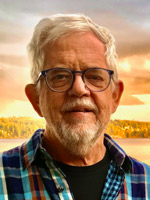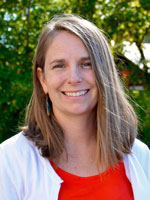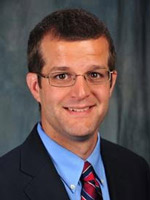
Reducing Climate Change Impacts in Minnesota
About the Webinar
In this webinar, several University of Minnesota researchers discussed how their work is connected to advancing resiliency and reducing the impacts of climate change in Minnesota.
Individual presentations:
- Explored culvert design for fish passage in Minnesota, including an overview of design characteristics that are vulnerable to climate change impacts and the need for more information to design resilient road–stream crossings.
- Summarized several studies focused on reducing organics and salt in stormwater. Projects on street sweeping, the movement of coarse organics from streets, and the movement of chloride associated with road deicing were discussed.
- Described research focused on the reuse of material traditionally thought of as waste in engineered soil mixes. These mixes can be used to treat "first flush"—the first inch of rainfall, which typically transports the majority of pollutants—leading to reduced cost of purchasing material, transportation of material, and storage waste material compared to current practices.
This webinar was held in conjunction with a meeting of the CTS Environment and Energy in Transportation Research Council.
Webinar Recording
- Watch the recording
- Kozarek and Herb's presentation slides (PDF)
- Baker's presentation slides (PDF)
- Saftner and Cai's presentation slides (PDF)
Speakers



Jessica L. Kozarek is a research associate at the University of Minnesota St. Anthony Falls Laboratory. Her research interests are in the areas of stream restoration and management; water quality dynamics; interactions between flow, sediment, and in-stream biota; and fish passage through culverts.
William Herb is a research associate at the University of Minnesota St. Anthony Falls Laboratory. His research interests focus on computer modeling of hydrology and water quality, including prediction of the impacts of urbanization and climate change on fish habitat.
Larry Baker is a research professor in the Department of Bioproducts and Biosystems Engineering at the University of Minnesota. His research seeks to understand urban ecosystems from an interdisciplinary perspective, generally with a focus on water quality. He has published more than 120 technical articles and reports and edited two books, including The Water Environment of Cities.


David Saftner is an associate professor in the University of Minnesota Duluth's Department of Civil Engineering. He earned a BS from the United States Military Academy and an MS and PhD from the University of Michigan. Prior to pursuing a career in academics, he spent five years as an engineer officer in the US Army, serving in Missouri, Colorado, Kuwait, and Iraq. His areas of research include geotechnical site investigation and characterization, beneficial reuse of waste soil material, and teaching and learning in engineering education.
Mei Cai is a research associate at the University of Minnesota Duluth's Natural Resources Research Institute. Her research interests include water chemistry, stormwater, climate change, watershed, and environmental statistics. Her research focuses on developing innovative treatment technologies for stormwater and wastewater treatment, reusing waste materials in the environmental application, and evaluating environmental stressors impacts on aquatic biological communities through statistical modeling.
Credit
Attendees are eligible for 2.0 American Institute of Certified Planners (AICP) maintenance credits.